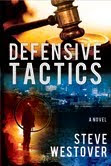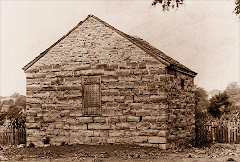
A pastor in Florida is extending a challenge to the married leadership of his congregation: Cancel your personal Facebook account.
Why? That seems a little extreme doesn’t it? The Pastor cites an increase in marital problems related to Facebook use. It is easy to see how this could happen: old flames rekindled after years or long lost friendships that reconnect based on past experiences and nostalgia. One thing leads to another, friendships are re-forged and then, whammo…infidelity, if not physical, often emotional. Maybe a marriage partner is feeling disconnected from their spouse so they seek comfort and understanding from a friend. Or maybe, over time the friendship grows stronger than expected and a real emotional bond is formed that is difficult to break.
Obviously, not every FB friendship will threaten a marriage, just as every person we connect with via phone calls, email, or texting will not result in infidelity. But there does seem to be a risk, if not physical infidelity, at least the appearance of an improper relationship that can hurt feelings or destroy trust.
With that in mind, is the Pastor overreacting, or is there wisdom in cautioning his parishioners of the dangers of Facebook? He recommends that individuals cancel personal FB accounts and open Family accounts instead, where every family member has access to all friends and postings thus allowing for transparency in marital relationships. Couples could also share passwords with their spouse so they have access to FB accounts. My wife and I share passwords and can view each other FB accounts but I don’t know that we ever actually go in and look. Is password sharing a viable option or merely a way to feel the illusion of transparency and trust?
Facebook is an interesting thing. I enjoy it. I check friend updates regularly and post status updates myself from time to time. I use it to connect with family, old friends from college and high school. I use it to connect with members of my church family and I even use it to promote my new book. Are those things bad? I don’t think so. But there are inherent dangers, not just for our young sons and daughters, but also for us if we are not cautious.
Because the social networking sites like FB are “virtual” interactions, that is, we are not speaking to someone face to face or voice to voice, there is risk in feeling disconnected from our actions. We may think, “Sure I’m flirting a little, but it’s only on the inter-net. What could possible happen?” Or we may “de-friend” someone knowing we’ll see them at church each Sunday anyway, and not realize, or at least not appreciate that feelings can be hurt and true friendships damaged because of our “virtual” friendship online.
Maybe we think there is distance between our keyboard and the feelings of our “friends”, but there really isn’t. We wouldn’t stand up in church and make a snarky remark about something important to a friend, or meet at the local town gathering to publicly repudiate someone. Would you de-friend an associate at work and expect that nothing would change in the working relationship? There may be good reason for breaking off a friendship, but we must realize there are always consequences. When we go to work the next day, things will be different.
If we are not careful we could encourage relationships that are inappropriate, or just as easily damage meaningful relationships with family, friends, church family and colleagues. We need to be aware that our actions have consequences, and that all interactions with friends and acquaintances either work towards building or destroying our relationships. That means “virtual” interactions have real consequences, just as our face-to-face friendships do.
Why? That seems a little extreme doesn’t it? The Pastor cites an increase in marital problems related to Facebook use. It is easy to see how this could happen: old flames rekindled after years or long lost friendships that reconnect based on past experiences and nostalgia. One thing leads to another, friendships are re-forged and then, whammo…infidelity, if not physical, often emotional. Maybe a marriage partner is feeling disconnected from their spouse so they seek comfort and understanding from a friend. Or maybe, over time the friendship grows stronger than expected and a real emotional bond is formed that is difficult to break.
Obviously, not every FB friendship will threaten a marriage, just as every person we connect with via phone calls, email, or texting will not result in infidelity. But there does seem to be a risk, if not physical infidelity, at least the appearance of an improper relationship that can hurt feelings or destroy trust.
With that in mind, is the Pastor overreacting, or is there wisdom in cautioning his parishioners of the dangers of Facebook? He recommends that individuals cancel personal FB accounts and open Family accounts instead, where every family member has access to all friends and postings thus allowing for transparency in marital relationships. Couples could also share passwords with their spouse so they have access to FB accounts. My wife and I share passwords and can view each other FB accounts but I don’t know that we ever actually go in and look. Is password sharing a viable option or merely a way to feel the illusion of transparency and trust?
Facebook is an interesting thing. I enjoy it. I check friend updates regularly and post status updates myself from time to time. I use it to connect with family, old friends from college and high school. I use it to connect with members of my church family and I even use it to promote my new book. Are those things bad? I don’t think so. But there are inherent dangers, not just for our young sons and daughters, but also for us if we are not cautious.
Because the social networking sites like FB are “virtual” interactions, that is, we are not speaking to someone face to face or voice to voice, there is risk in feeling disconnected from our actions. We may think, “Sure I’m flirting a little, but it’s only on the inter-net. What could possible happen?” Or we may “de-friend” someone knowing we’ll see them at church each Sunday anyway, and not realize, or at least not appreciate that feelings can be hurt and true friendships damaged because of our “virtual” friendship online.
Maybe we think there is distance between our keyboard and the feelings of our “friends”, but there really isn’t. We wouldn’t stand up in church and make a snarky remark about something important to a friend, or meet at the local town gathering to publicly repudiate someone. Would you de-friend an associate at work and expect that nothing would change in the working relationship? There may be good reason for breaking off a friendship, but we must realize there are always consequences. When we go to work the next day, things will be different.
If we are not careful we could encourage relationships that are inappropriate, or just as easily damage meaningful relationships with family, friends, church family and colleagues. We need to be aware that our actions have consequences, and that all interactions with friends and acquaintances either work towards building or destroying our relationships. That means “virtual” interactions have real consequences, just as our face-to-face friendships do.
In my opinion there is nothing inherently evil about Facebook that would merit a “Thou Shalt Not” kind of commandment. It is merely another way for us to interact and just as email, letters, phone, skype, clubs, or thousands of other ways that we choose to interact, are tools for us to use, Facebook is a tool, that when used properly, can help to build and strengthen relationships. Like the other mediums, if misused or abused, there can be negative consequences with the misuse or abuse of Facebook. It all comes down to each of us as individuals. I can’t blame Facebook if I misuse it, I can only blame myself.

























I agree 100% very well said. We should use FB to build and uplift those around us not tear them down. I agree that we would NEVER publicly "flog" those around us, so we should not do it on Facebook. I also think that the adversary would have us use it for the negative (which I have been guilty of) instead of positive means for building and uplifting. I have been guilty of negative things and I am trying very hard to be uplifting and kind on mine. If I have a problem I should talk to the person that it involves IN PERSON or via phone!
ReplyDeleteThanks for sharing your thoughts. I love it when people express my thoughts and feelings because I'm not so good at expressing my own!
Sheli Cunningham (I had to post as anonymous because I didn't have an account that was listed! Sorry)
Excellent comments, Steve. I think we can misuse anything and it's up to us to use it properly and to teach our children to use it properly. I use FB to interact with my college kids. I've also found HS friends and family members. And, I use it to promote my books. If people are breaking up their marriages over FB, there's more to the problems of that marriage than simply being on FB.
ReplyDeleteVery nicely said. I have used FB to witness as well. I think there are problems on FB, as there are many problems on the internet as a whole, but God does give us many ways to witness about His love, and about the gift of His Son Jesus, and we should use every thing He gives us, and take advantage of every chance we have to witness for Him. Keep up the good work Steve.
ReplyDeleteI absolutely agree with all of your comments. Kevin and I can access any of our family accounts. I love that I have been able to reconnect with people who have had a positive influence in my life, and I am grateful to be able to interact with distant family. We are blessed with so much technology that can help us to better ourselves and our communities if we choose to use it wisely.
ReplyDeleteI enjoyed reading your post and totally agree with you, as well. We can't blame the internet or FB for our actions. We decide for ourselves how we live our lives. I enjoy FB because I have been able to communicate with relatives and friends as well as make new friends and find relatives I didn't know I had.
ReplyDeleteKinda funny that the pastor was doing his own share of fiddling around on the side, huh? A guilty conscience can drive a person to say a lot of things in order to deflect some of the shame and to find a good place for the blame. Facebook is wonderful for re-connecting and a super tool for quick communication. Misuse of it can happen, but good thing we have the power of agency. FB is only what you make it. :)
ReplyDelete